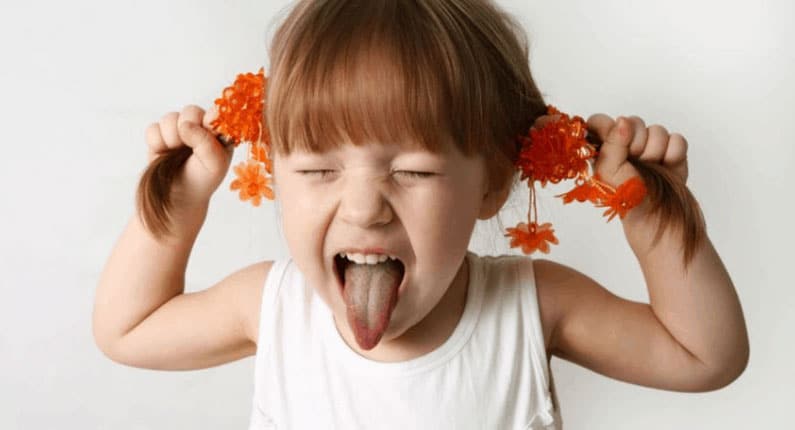
The Victorian days of children being seen but not heard are long gone – replaced by a world in which parents often seem all too happy to allow their child to interrupt an adult conversation.
Now, even the most well-bred royal children are not immune to the odd childish tantrum. Pageboy Prince George received a stern telling-off from his mother, the Duchess of Cambridge, when he tipped a basket of confetti over and trod on aunt Pippa Middleton’s wedding dress, while Princess Charlotte had a temper tantrum just before boarding a plane on a royal tour.
‘Please’ and ‘thank you’ are the bare minimum, but children can also be taught to wait for a lull in an adult conversation to interject – or, at the very least, to say ‘excuse me’ rather than just interrupting. The same goes for knocking on a closed door.
• Learning how to talk politely to adults is a great gift for a child – for instance, greeting them when arriving for a play date with a friend, thanking them for the invite as they leave. A great lesson to teach your child is to understand that, if someone asks how they are, they should reply and then ask the same question back. It is also good for children to greet people by name and make eye contact while they speak (this one really impresses), without fidgeting.
• The thank you letter is a dying art but a much appreciated one. Make sure your child sends them out for any gift. Even if the gift was not particularly well received, they should learn how to hide that and be grateful that someone thought to give them a present at all.
• At dinner, make sure your child asks for an item to be passed to them rather than reaching across the table. Elbows should be kept off the table and one should never chew with one’s mouth open. A child who has finished their meal should ask to be excused. While we cannot expect that children will like all food types, they should at least take a bite and then apologise and perhaps say it’s “not my favourite”… not that it was “disgusting. An offer to help to set the table or clear up will not fail to be well received.
• Children have a tendency not to look where they are going – teaching them to look first before rushing off will avoid collisions with other people or objects and set them apart from other kids. If they do happen to bump into somebody, they should of course say ‘excuse me‘. Respect for elders goes without saying. A child who learns not to point or stare will also stand apart from their contemporaries.
• Nose-poking, coughing or sneezing without covering their mouth, pushing and shoving, grabbing, calling anyone by a bad name or whining – all are simply unacceptable.
• Children should learn to answer the phone politely and take messages if needed – but more importantly in the modern age, they should understand (as should adults, come to that) that it is rude to be playing with a phone or tablet during a conversation.
• On public transport, children should not put their feet up on the seats and (pet peeve) never kick the seat in front of you, particularly for hours on an airplane.
Above all when parenting, we should remember that good manners will always be in fashion and will always serve your offspring very well in their future.
Share This Page, Choose Your Platform
The British School of Excellence is the #1 industry leading organisation in etiquette, manners, life skills and service training.
The British School of Excellence is a certified Disability Confident Employer.
We believe that we are the best at what we do, but don’t just take our word for it – see the reviews of our courses at the independent review site Coursecheck.
Become a part of the BSE community to keep up to date with our courses, articles and news. Become a better, more confident and professional you!
We are so excited to present our Train the Trainer programme live and in person in London at one of the city’s most prestigious venues, The Lansdowne Club, from June 10 to 14, 2024.